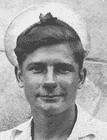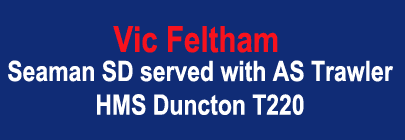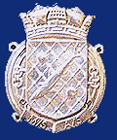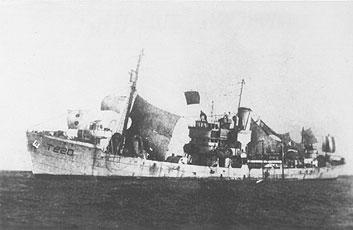


 |
 |
 |
|
Vic Feltham remembers some of his more interesting experiences on the A/S trawler HMS Duncton It all began as a teenager In Bournmouth I was born on 25th February 1925 and grew up in Bournemouth and at the age of 14, I joined the sea cadets. I later joined the Home Guard. I was kited out in uniform, issued with the Enfield rifle and six rounds of ammunition, We used to do all night duty at Queens Park, our job was to round up any German parachutists that might happen to land there. In March 1943 I was told to report to the Army recruiting depot in Southampton. 1 wanted to join up in my trade, but I was told that there were no vacancies and would have to go in the Infantry. I Was not keen on that, so went over to the Naval recruiting office and volunteered for the Navy. After I was given some IQ tests and asked some questions I was accepted. I left home at 4.30 in the morning en route to Kings Cross London, I was short for my age and looked about fourteen instead of eighteen. I was shopped by the Police an accused of running away from home and I had to produce my travel warrant and 'call up' papers! By the end of the War the Navy must have did me well as I eventually came out at 5'8! |
|
HMS Duncton T220 "back from the dead!" It
was here in Freetown that I joined the Anti Submarine trawler HMS Duncton
on the 10 January 1944. I had some very interesting trips and times
on her and she was certainly a 'happy ship'. We visited most of the
ports on the West African coast from Gibraltar to Simonstown and a trip
to Las Palmas and the Ascension Islands. As Las Palmas was neutral port,
we were allowed ashore in 'civvies' only so the local tailors did well!
|
|
(Right)
HMS Duncton 'under sail' in a desperate attempt to escape from perilous
U boat waters off the West African coast
(picture taken July 1944)
|
 |
|
After the refit we were sent out of Capetown for sea trials. This exercise
involved dropping a few depth charges. However, we sprung a couple of
plates when we couldn't get away quick enough so it was back to Capetown
for repairs! After being patched up we eventually set off back to Freetown. |
Vic Feltham
& Nick Clark
Nick Clark © 2001
 |
 |